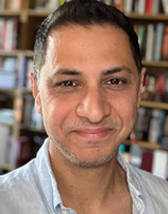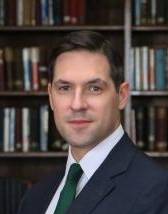An Uncertain Future: Assessing Regional Responses to Iran’s Nuclear Programme
While the recent Geneva deal has reduced tensions with Iran, the spectre of a nuclear Islamic Republic remains on the agenda of regional policy-makers
The Iranian nuclear crisis is not new, but the context in which it now unfolds increasingly is. Even though an interim deal has been struck in Geneva, its success is not guaranteed. A subsequent, more comprehensive settlement may be some way off, and states in the region remain suspicious of Iran’s nuclear intentions.
Visit the project e-forum, where responses to the report's findings are available
Some, like Saudi Arabia and Israel, see the threat as acute; others, such as Turkey or Jordan, less so. But while tensions have been reduced, the spectre of a nuclear Iran remains on the agenda of regional policy-makers.
This Whitehall Report is based on fieldwork in the greater Middle East, including over forty interviews of political, diplomatic and military elites, including serving decision-makers, in eight different countries. It assesses regional responses to Iran’s nuclear programme, including the prospect of a nuclear-armed Iran, as it develops under conditions of growing regional instability and uncertainty.
Including contributions by Mohammed Al-Ardhi, Michael Herzog, Mahmoud Karem, Mira Rapp-Hooper, Jean-Loup Samaan, Aaron Stein, Saud al-Tamamy, and Zachary K Goldman.
About the Authors
Shashank Joshi is a Research Fellow of the Royal United Services Institute (RUSI), where he focuses on South Asia and the Middle East. He is a PhD Candidate at Harvard University, and holds degrees from Cambridge and Harvard Universities. He has been published in journals including the Washington Quarterly, Survival, RUSI Journal, Orbis, Current History, and the Journal of Strategic Studies. His articles also have appeared in newspapers including the New York Times, Financial Times, Daily Telegraph, Guardian, and The Hindu. His monograph, The Permanent Crisis: Iran’s Nuclear Trajectory, was published in RUSI’s Whitehall Paper series in late 2012.
Michael Stephens is the Deputy Director of RUSI Qatar, having joined RUSI’s London office in September 2010, first in the Nuclear Security Programme, then in International Security Studies. His recent research has focused on Arab Shia identity across the Middle East and its relationship with Iran. He is also a specialist in Qatari foreign policy and Gulf security, writing about issues of society and security from his base in Doha. As a frequent commentator on Middle East affairs, his writing has appeared in many news outlets and he is also a regular broadcast commentator. Michael studied at King’s College London and in the Middle East.
Dr Saud Mousaed Al Tamamy is an assistant professor of political theory at King Saud University (KSU), Riyadh, Saudi Arabia, with research interests in political theory and international and strategic issues. He was awarded his PhD from the University of Exeter in 2009, and his PhD thesis will shortly be published under the title Averroes, Kant and the Origins of the Enlightenment: Reason and Revelation in Arab Thought (I.B.Tauris). He has also contributed a chapter to the book Saudi Foreign Policy 1960–2010 with a chapter entitled ‘Saudi Foreign Policy towards the Arab-Israeli Conflict.’
Mohammed Mahfoodh Al Ardhi is a graduate from the RAF College, Cranwell with a Bachelor of Science in Military Science. Al Ardhi rose to become head of the Omani Air Force, a position he held for ten years. Following his military service, Al Ardhi earned a Master of Public Administration from the John F Kennedy School of Government at Harvard University. He was appointed vice-chairman of the National Bank of Oman (NBO) in 2010, and serves on the International Advisory Board of the Brookings Institution in Washington, DC and is a trustee for the Eisenhower Fellowship in Philadelphia. Al Ardhi is the author of two books: Arabs Down Under and Pearls from Arabia.
Ambassador Dr Mahmoud Karem is special adviser to the Foreign Minister of Egypt on Non Proliferation, and a former Egyptian diplomat.
Aaron Stein is an Associate Fellow of RUSI. He is also the nonproliferation programme manager at the Center for Economics and Foreign Policy Studies in Istanbul, where he works on security and proliferation issues in the Middle East. He is currently a PhD Candidate at King’s College London, researching Iranian and Turkish nuclear decision-making. He has written extensively on Turkish politics and regional proliferation, publishing in scholarly journals and print media, including Foreign Policy, Bulletin of Atomic Scientists, National Interest, and World Politics Review.
Brigadier General (IDF rtd) Michael Herzog is an International Fellow at the Washington Institute for Near East Policy and a Senior Visiting Fellow at BICOM (Britain Israel Communications and Research Centre). He previously served as head of Strategic Planning in the IDF and chief of staff to Israel’s minister of defence.
Zachary K Goldman is the Executive Director of the Center on Law and Security. He has previously served as a policy adviser in the US Department of the Treasury’s Office of Terrorist Financing and Financial Crimes, and as a Special Assistant to the Chairman of the Joint Chiefs of Staff. His publications have appeared in Cold War History, Foreign Affairs, The Atlantic, The Diplomat, National Interest and others.
Mira Rapp-Hooper is a PhD Candidate in Political Science at Columbia University and a Stanton Nuclear Security Fellow at the Council on Foreign Relations. Her dissertation, ‘Absolute Alliances: Signaling Security Guarantees in International Politics’, analyses the formation and management of nuclear umbrella pacts. Mira’s writings have appeared in Survival, Strategic Asia, The Atlantic, The Diplomat, National Interest and others.
Jean-Loup Samaan is a researcher in the Middle East Department of the NATO Defense College (Rome, Italy). He holds a PhD in political science from the University of Paris and has been a visiting scholar at Duke University and the RAND Corporation. From 2008 to 2011 he served as a policy adviser for transatlantic relations at the French Ministry of Defense.
WRITTEN BY
Shashank Joshi
Advisory Board Member
Michael Stephens
RUSI Senior Associate Fellow, RUSI International



